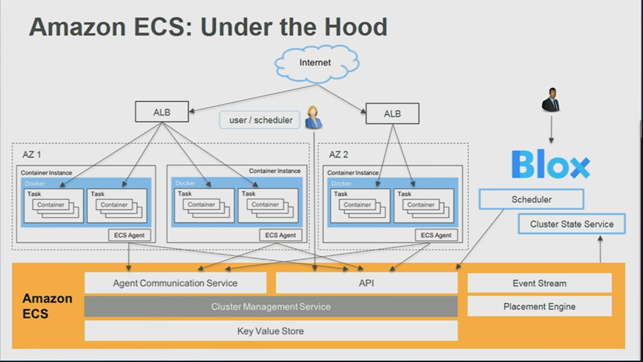
First approach involves seeing Docker containers as really lightweight Virtual Machines. Let’s go deeper into this docker vs kubernetes discussion … 2. But keep in mind that in practice you will benefit a lot more if you start with the simple case of Docker running on a single machine, and then gradually understand how Kubernetes comes into play.

In theory, you can learn about one without having a clue about the other.

When like-minded individuals collaborate, they exchange bright ideas and learn best practices from one another. These projects are more than technologies, they are a community of people, which despite its differences, it is composed of some of the brightest minds in the Industry. To get into the Kubernetes vs docker discussion, we must also understand their similarities. 1.2 Similarities between Kubernetes and Docker. Both projects have wholeheartedly embraced each other and have benefited tremendously from this symbiosis. If anyone was nervous about adopting Kubernetes, for their Docker-based product, that last point would get rid of all of the doubts. But even they realized the fact that Kubernetes has risen to the point that even Docker for Desktop (MacOS and Windows) comes with its own Kubernetes distribution. Similarly, Docker Inc., the company behind Docker, offers their own container orchestration engine, named Docker Swarm. However, Docker has won the greatest market segment and that has led to a lot of effort in perfecting the integration between Docker and Kubernetes, more than any other containerization technology. Two of the most popular options that Kubernetes can integrate with are rkt and Docker. In principle, Kubernetes can work with any containerization technology. To enter into the debate of kubernetes vs docker lets take a look at the differences. While Docker is at the heart of the containerization, it enables us to have containers in the first place.“ 1.1 Differences between Kubernetes and Docker. In other words, it is a container orchestration platform. “Kubernetes automates the process of scaling, managing, updating and removing containers. To make your application more scalable - If workload increases simply spawn more containers and/or add more nodes to your Kubernetes cluster.To make the infrastructure more robust - Your application will be online, even if some of the nodes go offline, i.e, High availability.Now, why would you need to have multiple nodes in the first place? The two main motivations behind it are: A collection of nodes that is managed by a single Kubernetes instance is referred to as a Kubernetes cluster. Kubernetes can then allow you to automate container provisioning, networking, load-balancing, security and scaling across all these nodes from a single command-line or dashboard. These nodes or Docker hosts can be bare metal servers, or virtual machines. If you have Docker installed on a bunch of hosts (different operating systems), you can leverage Kubernetes. Docker is what enables us to run, create and manage containers on a single operating system.

You create an illusion for your application that it is getting its very own OS instance, although there may be other containers running on same system. A containerization is an approach of running applications on an OS such that the application is isolated from the rest of the system.
#WHAT IS KUBERNETES VS DOCKER COMPOSE SOFTWARE#
But Kubernetes can (and does) benefit greatly from Docker and vice versa.ĭocker is a standalone software which can be installed on any computer to run containerized applications. Quite the contrary Kubernetes can run without Docker and Docker can function without Kubernetes. The question Kubernetes vs Docker? in itself is rather absurd. The Symbiosis between Kubernetes and Docker


 0 kommentar(er)
0 kommentar(er)
